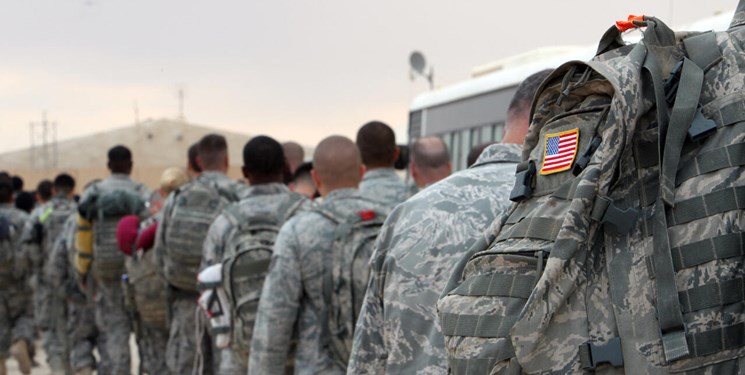In the first round of negotiations, which was conducted with the presence of the Iraqi Prime Minister, the parties agreed to form three working groups that would investigate “the level of threat posed by ISIS,” “operational and environmental requirements,” and “strengthening the growing capabilities of the Iraqi military and security forces.”
The tripartite committees, after evaluating the results and current conditions and trends, including presenting a perspective of the threat of ISIS, the security situation in Iraq at different levels, especially in the fight against ISIS and insecurity, as well as the requirements that demand the Iraqi army to rely on its capabilities, will prepare a “road map” for the withdrawal of the US forces from Iraq.
There is no doubt that the US military and security forces and bases are one of the main factors of instability, insecurity, political-factional differences, and economic problems in Iraq. Therefore, the withdrawal of the US from Iraq is the most important demand of the people, various political groups, and the government of that country, which the members have also approved of the parliament. Even in recent months, anti-American sentiments in Iraq have been constantly growing, and the people of that country strongly demand the expulsion of the US troops from their country.
But considering the developments related to the recent Baghdad-Washington talks, the question arises whether the US administration is really thinking of withdrawing its military from Iraq and shutting down its base in that country.
By pondering on the text of the final statement of the first round of talks and the remarks of some American officials, a clear answer can be given to this question; the US Defense Department issued a statement on Thursday, January 25, before holding talks with the Iraqi side, emphasizing that the talks will be held as part of a joint military committee (HMC) that was agreed upon last summer. There will be a discussion about moving towards a stable bilateral security partnership between Iraq and the United States.
Meanwhile, in the statement of the Iraqi government, the gradual lowering of the number of “international coalition advisers” and the end of the “mission to fight ISIS” with the United States of America in Iraq have been emphasized. In fact, from the point of view of the United States and according to what is stated in the Pentagon statement, the negotiations will focus on broader security cooperation, not the military withdrawal from Iraq.
This contradiction clearly shows that not only do the Americans have no intention of leaving Iraq, but through the joint High Military Committee (HMC), they are seeking to define the legal and constitutional infrastructure through an agreement with the Iraqi government to “maintain” their presence in that country in other, and so-called more justified, forms.
Before that, American National Security Adviser Jake Sullivan, in a speech at the Washington Institute for Near East Policy on May 4, 2023, while announcing Washington’s firm commitment to the region, announced the updated priorities of the Biden administration for West Asia by identifying five new frameworks, namely partnership, deterrence, diplomacy and de-escalation of tension and integration of values, for the interaction of the United States with the countries of the region.
In fact, these are part of a full-fledged road map designed by the US to advance security, military, political, economic, etc. policies for West Asia.
In addition, the developments in the occupied territories, the developments in the Red Sea, the tense and unstable situation of the Zionist regime, and the inherent obligations that the White House has in supporting that regime are among other indicators that discuss the complete and definitive withdrawal from Iraq, which has an strategic importance for the United States and is one of the geopolitical pillars of that country to contain the Islamic Republic of Iran and the Resistance Front and to ensure the security of the Israeli regime.
Therefore, the use of the concept of “bilateral partnership” instead of “withdrawal from Iraq” in the statement of the US Department of Defense and Jake Sullivan’s declaration manifesto as the decisive strategy of the US for West Asia clearly shows that the US administration is participating in bilateral talks with Baghdad with a time-consuming and deceptive approach and despite its claims, not only is it not looking for a military withdrawal from the region and Iraq, but it is looking for a “long-term plan” to strengthen its presence in the region, of course, with special considerations, sensitivities and requirements that are so-called less provocative.
The set of said issues reveals that the US is not looking to leave Iraq and is still trying to maintain and strengthen its security presence in an updated and complex form. Even if it is assumed that the US military forces leave their bases in Iraq, in addition to trying to replace it with another form of presence and influence, it will probably continue to deploy its forces in the Kurdistan Region, which has closer relations with Washington.
It is also necessary to pay attention to the fact that the security presence sometimes has more threats than the military presence, but in a hidden and complicated way, which the Iraqi government pays special attention to in its discussions with the United States because experience has shown that the United States is not reliable. In other words, the hand that the US has extended to Iraq, according to the available evidence, is a “cast iron hand” covered with a velvet glove.










0 Comments